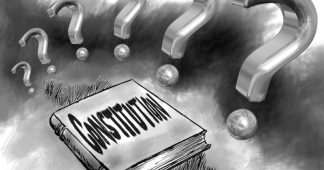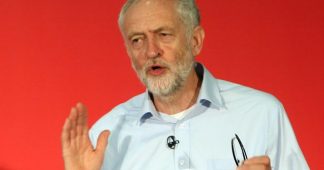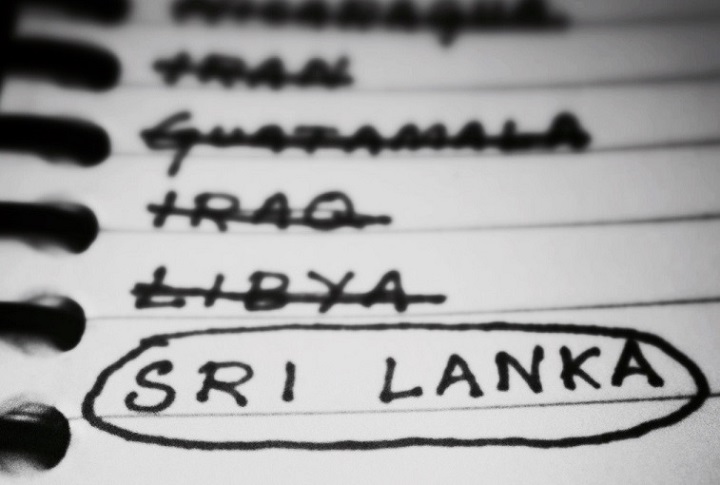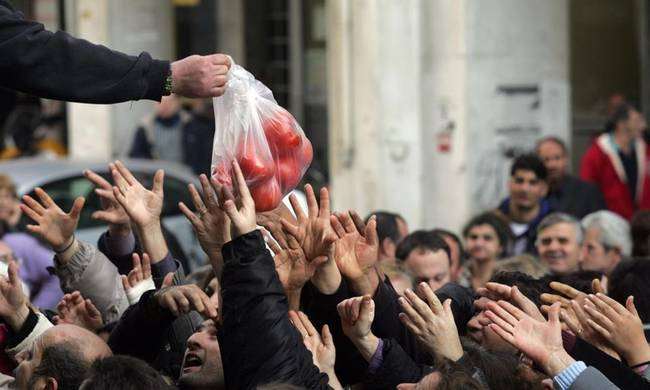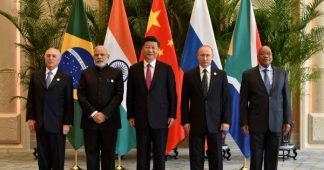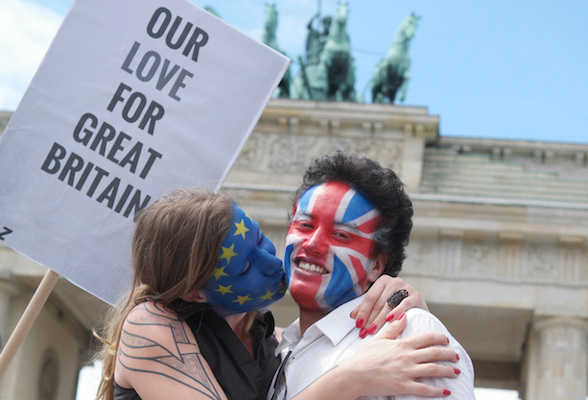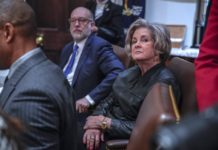Tamara Kunanayakam
March 13, 2018
Given that we find ourselves today standing at a pivotal crossroads in our nation’s history, I would like to begin and end by addressing an appeal to the Sri Lankan people – irrespective of the community they belong to – not to be swayed by events imposed upon them by others, but to keep their focus on the issues that concern them directly – the real issues, the issues that affect their daily lives, their working and living conditions, the issues that determined their vote and political choice at the recent Local Government elections.
The vote of the people was not a vote for or against Muslims, or for or against Tamils, or for or against Sinhalese. It was a majority vote against the Yahapalana Government and its pro-Western anti-people policies, which the people had correctly identified as being responsible for the rapid decline in their working and living conditions, and for their loss of sovereignty.
This is the second time in our recent history that we are confronted with a decisive moment where we are called upon to make a choice. I say second, because the situation today in many ways resembles July 1983 when politically motivated goon attacks were organised to provoke ethnic divisions amongst fellow Sri Lankans in order to divert their attention away from the real issues and to prevent them from uniting against the established status quo.
The choices that were made by the leadership then (July 1983) took the people into one of the darkest ages of Sri Lanka’s recent history, which saw more than two and a half decades of conflict and war; the rise of extremism, terrorism and separatism; a permanent State of Emergency and fear; the curtailment of fundamental freedoms, democratic and human rights; the institutionalisation of impunity; a deterioration in the living and working conditions of the masses; the physical elimination of progressive forces and future leaders; the dismantling of public services and enterprises ; the destruction of the country’s social fabric and loss of values; and, very importantly, external intervention in the affairs of our country, including in the form of support to terrorism and direct military intervention.
The situation today is eerily comparable to July 1983, the only difference being the community targeted – yesterday, they were Tamils, and today Muslims.
Then as now, the UNP was in power.
Then as now, the tragic events took place in the context of tremendous economic and political crises, and social upheaval.
Then as now the “people” were held responsible.
Then as now, the Government had lost its legitimacy.
Then as now, the unilateral choices made by the political leadership will affect the future of the country, its independence and sovereignty, and the right of our people to determine their economic, social, cultural and political destiny.
The recent events must be placed in their proper context to be understood.
In only three years of the Yahapalana regime, the socio-economic conditions of the masses have rapidly deteriorated. It is the ordinary people who have had to bear the brunt of an increasingly heavy debt burden of an externally-driven development model and the resulting pro-Bank/anti-people conditionalities imposed on us by the IMF/World Bank. Austerity, privatisation and liberalisation of trade and finance in favour of foreign capital have seriously undermined the real economy upon which the majority of the people depend for their livelihood, badly affecting food security, increasing the cost of living, and negatively affecting real wages. The fact that over 25% of the Sri Lankan population does not have sufficient food to sustain a healthy life, according to FAO, is shocking and unacceptable. In South Asia, the prevalence of undernourishment in Sri Lanka is reported to be only second to Afghanistan.
On the political front, the Yahapalana combine is confronted with a political debacle resulting from its massive rejection in the long-delayed Local Government elections. The consequence is an unprecedented crisis of cohesion – within the UNP, between the UNP and the SLFP faction in Government, and between the President and the Prime Minister, with the leadership of the Prime Minister’s challenged from within and without his own Party, a looming No-Confidence Motion, a General Election and Presidential elections around the corner.
Like President J. R. Jayawardane before him, Prime Minister Ranil Wickramasinghe finds himself in the predicament of having to fulfill the commitments his Government made to Washington in the face of a combined opposition. Like Jayawardane, Wickramasinghe will need a Parliamentary majority to accelerate pro-Western reforms he has begun, including the new Constitution demanded by Washington.
This is the context in which the recent anti-Muslim attacks took place.
The question that arises is : Who benefits from the crime?
Do the Sri Lankan people, I mean all people, irrespective of their origins, benefit from the attacks against Muslims?
I will respond to that question with others.
Is it possible that people would benefit from having their attention diverted away from the real issues that mobilised them at the Local Government elections and forced many to reverse the stand they took at the 2015 Presidential Elections? Is it possible that people who have been victims of more than two decades of war would want to go through another?
Is it possible that the people benefit from a State of Emergency that permits the regime to curtail their freedom of expression and opinion, the freedom of the press, their right to information, their freedom to communicate, their freedom to hold meetings, their freedom to take collective action, including through strikes, meetings, demonstrations, rallies, etc.? Is it possible that the people would enjoy living in fear, fear of arbitrary arrest, fear of incommunicado detention, fear of torture, fear of summary execution, etc.? A continuation of the State of Emergency may result in Provincial Council elections being postponed once again. And, perhaps, the General Elections replaced with a referendum under a State of Emergency as J.R. Jayawardane did in 1982…
If the attacks don’t benefit the people, then we may ask, does it benefit the political opposition?
There is already an international campaign against Mahinda Rajapaksa claiming he is behind the anti-Muslim attacks. How credible are these accusations? Having just won an impressive political victory, how would he benefit from a State of Emergency that will prevent him from mobilising the masses for the bigger political battles ahead – the Provincial Council elections, General Elections, and Presidential Elections.
In fact, the effect of the anti-Muslim attacks has already been to place the opposition on the defensive. There has been a deafening silence on the proposed No-Confidence Motion against the Prime Minister (until today), on the bond scam, on the controversial project to draft a new Constitution, on the catastrophic situation in which the country finds itself, etc., etc.
If neither people nor Opposition benefit from the attacks, the next question we may ask is, do they benefit Washington?
Objectively speaking, coming at a time that its governmental ally was in serious difficulty, the attacks targeting a particular ethnic or religious group help justify Washington’s demand that universal jurisdiction or external intervention be applied to Sri Lanka through implementation of its 2015 Human Rights Council, which includes a complete overhaul of the system of governance.
Washington has been concerned that its resolution has been widely contested by the Sri Lankan people, including at the highest level of State. The return of the controversial US Peace Corps, a “soft power” weapon in Washington’s arsenal, that had been expelled by the Government of Sirimavo Bandaranaike for spying for the CIA reflects Washington’s fears about the forthcoming General Elections and Presidential Elections. The US Peace Corps has been expelled from a number of countries for spying for the CIA and other covert activities, meddling in local politics, and running drugs. As recently as September 2017, Cambodia’s Prime Minister demanded the withdrawal of the US Peace Corps for conspiring with the opposition leader Kem Sokha to overthrow his government.
The results of the local government election have made it all the more urgent for Washington to strengthen its allies in Government. The US Ambassador’s Viceroy-like behaviour even before all the results of the local government elections were released to the public, rushing as he did to request the President not to replace the Prime Minister, demonstrated the extent to which Washington would be ready to go to maintain the status quo.
The anti-Muslim attacks provided just such an opportunity.
The timing of the attacks to coincide with the sessions of the Human Rights Council, the arrival of the US Peace Corps, and the arrival of the UN Under Secretary General for Political Affairs Jeffrey Feltmann, a former US Assistant Secretary of State, is not fortuitous.
It gave the High Commissioner the opportunity to threaten Sri Lanka with universal jurisdiction if it fails to make progress in accountability and transitional justice. His choice of language is to target only the previous Government under Mahinda Rajapaksa, to strengthen Washington’s allies within the present regime, and to advance Washington’s project to gain international legitimacy for its unilateral interventions in the internal affairs of other States.
The attacks also help advance Feltman’s agenda, which is inseparable from the agenda of Washington. Feltman is a neoconservative hawk who has been involved in the break-up of sovereign States into ethnic enclaves. Within the UN, he is also responsible for a team working on constitutional arrangements promoting federalism as a response to ethnic minority grievances.
Describing the anti-Muslim clashes as a conflict between Buddhists and Muslims or between Sinhalese and Muslims only serves such an agenda, a agenda that aims at dividing people on ethnic/religious lines, fomenting conflict between them, keeping them permanently divided and weak, ultimately permitting partition of their country and imposition of the infamous Kosovo-model.
In conclusion
My conclusion is that the anti – Muslim attacks serve only Washington’s agenda, propping up its allies in a tottering Yahapalana Government, silencing the opposition within and outside Government, dividing the people, shifting their attention away from the real issues, and, advancing Washington’s objective of turning Sri Lanka into a vassal State that can be utilised in its strategy of containing and rolling back China. .
The anti-Muslim attacks are not in the interests of the people. That is why I would like to conclude by reiterating my appeal to the Sri Lankan people not to be swayed by the events imposed upon them by others, but to keep their focus on and pursue the issues that concern them directly – the real issues, the issues that affect their daily lives, their working and living conditions, the issues that determined their vote and political choice at the recent Local Government elections.
